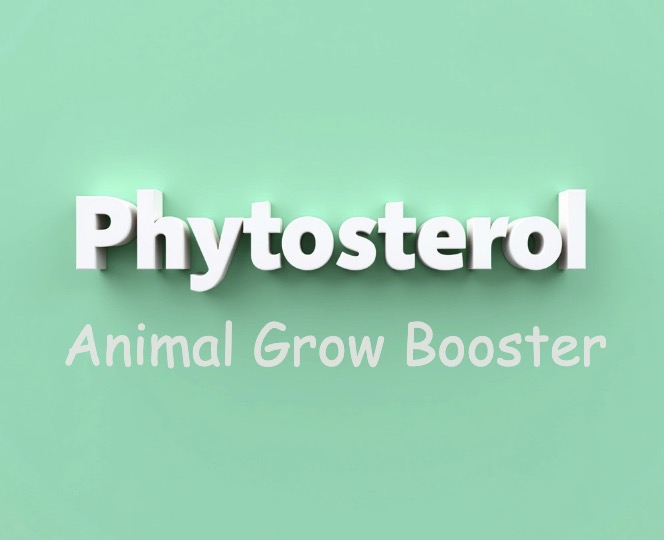Phytosterols are plant – derived sterols with a chemical structure similar to cholesterol, the function of phytosterol for layers as following:
1. Source and types
- Sources: Phytosterols are widely found in plants. Common sources include vegetable oils (such as soybean oil, rapeseed oil), nuts, seeds, and whole grains.
- Types: The main types of phytosterols include β – sitosterol, campesterol, and stigmasterol.
2. Effects on laying hens
Cholesterol reduction
- In eggs: One of the most significant effects of phytosterols in laying hens is their ability to reduce the cholesterol content in eggs. Phytosterols compete with cholesterol for absorption in the intestinal tract of hens. They can displace cholesterol from micelles, which are responsible for transporting cholesterol across the intestinal epithelium. As a result, less cholesterol is absorbed into the bloodstream of the hen and subsequently deposited in the eggs. This is beneficial for consumers who are concerned about their cholesterol intake.
- In hen’s body: Phytosterols also help in reducing the cholesterol levels in the hen’s body. By interfering with cholesterol absorption, they can lower the overall cholesterol concentration in the blood, liver, and other tissues of the laying hen. This may have positive implications for the hen’s health, as high cholesterol levels can be associated with various metabolic disorders.
Reproductive performance
- Egg production: Some studies suggest that phytosterols can have a positive impact on egg production in laying hens. They may regulate the hormonal balance in the hen’s body, promoting normal ovarian function and egg – laying cycles. For example, phytosterols can influence the synthesis and secretion of reproductive hormones such as estrogen, which is crucial for egg development and ovulation.
- Egg quality: In addition to reducing cholesterol, phytosterols can improve other aspects of egg quality. They may enhance the thickness and strength of the eggshell, reducing the incidence of cracked or broken eggs. Phytosterols can also contribute to the quality of the egg yolk, such as its color and nutritional composition.
Immune system enhancement
- Antioxidant activity: Phytosterols have antioxidant properties. They can scavenge free radicals in the hen’s body, protecting cells and tissues from oxidative damage. Oxidative stress can weaken the immune system of laying hens, making them more susceptible to diseases. By reducing oxidative stress, phytosterols help to maintain a healthy immune system, enabling the hens to better resist infections and diseases.
- Immune – related gene expression: Phytosterols can also modulate the expression of immune – related genes in the hen’s body. They may up – regulate the production of cytokines and other immune factors, enhancing the overall immune response of the laying hens.
3. Application in layer diets
- Dosage: The appropriate dosage of phytosterols in layer diets depends on various factors, such as the age of the hens, the initial cholesterol content in the eggs, and the specific source of phytosterols. Generally, the addition level ranges from a few hundred milligrams to a few grams per kilogram of feed.
- Formulation: Phytosterols can be added to the layer feed in different forms. They can be incorporated as part of a phytosterol – rich ingredient, such as vegetable oil or a phytosterol – enriched premix. It is important to ensure uniform distribution of phytosterols in the feed to achieve consistent effects.
4. Precautions
- Compatibility with other feed ingredients: When using phytosterols in layer diets, it is necessary to consider their compatibility with other feed ingredients. Some ingredients may interact with phytosterols, affecting their stability or efficacy. For example, certain minerals or vitamins may form complexes with phytosterols, reducing their bioavailability.
- Long – term effects: Although short – term studies have shown positive effects of phytosterols in laying hens, more research is needed to fully understand the long – term effects of continuous phytosterol supplementation on the health and performance of laying hens.

